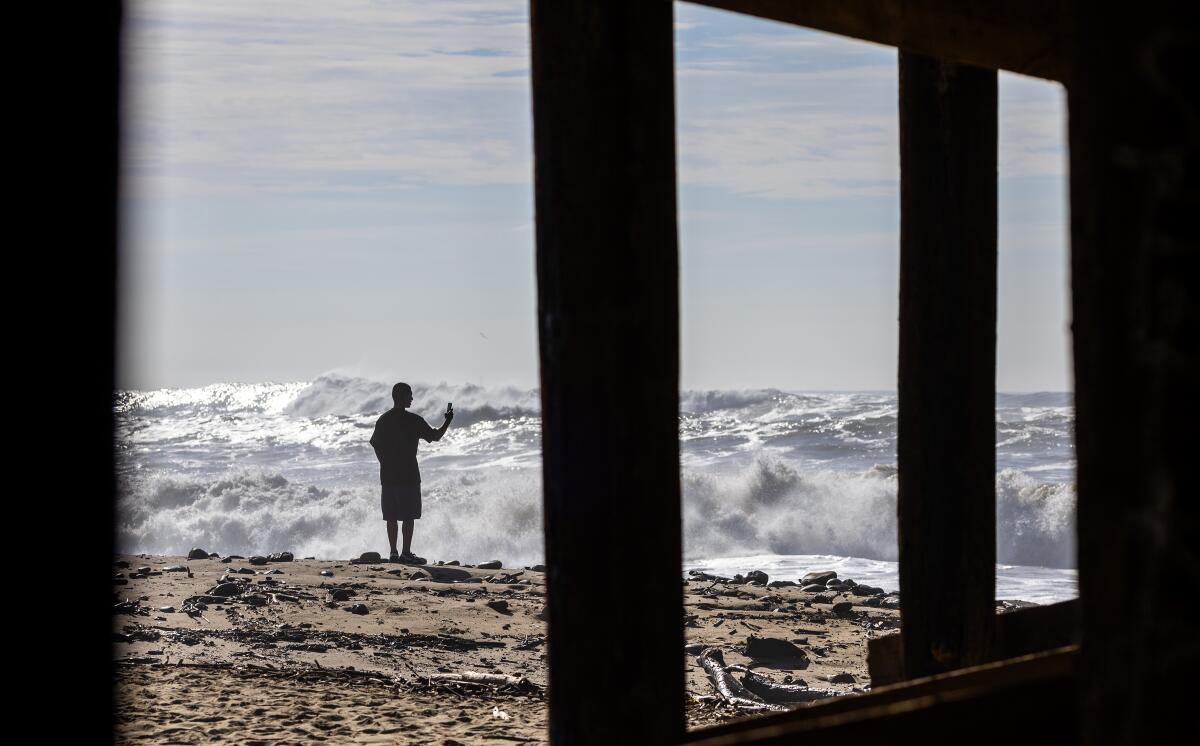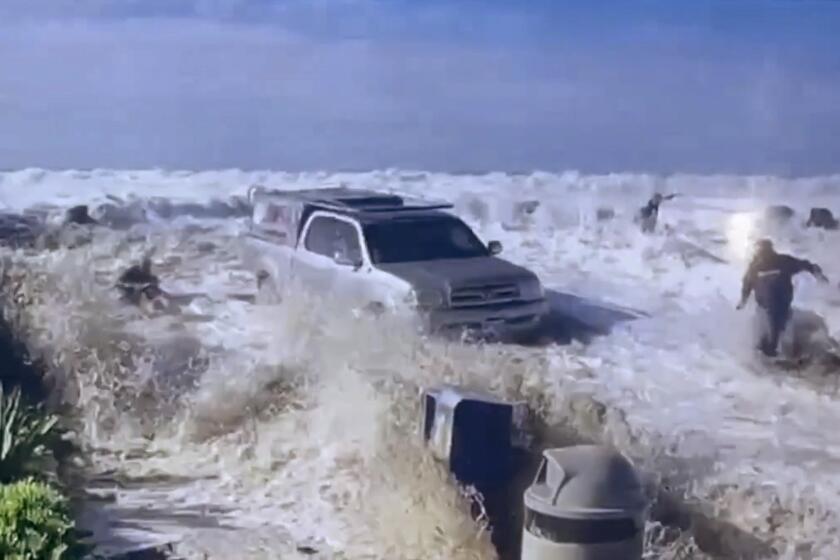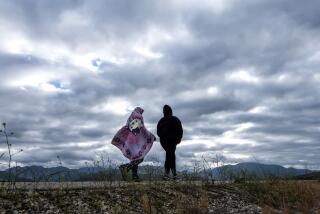New year to bring the coldest storm of the season so far, officials say

The first week of 2024 is expected to be a cold and wet one in Los Angeles, according to the National Weather Service.
There’s a 20% to 40% chance of rain into New Year’s morning. People camping out for the Rose Parade may have seen some precipitation, but the parade itself should be mostly dry, said Rich Thompson of the weather service.
That’s good news for parade organizers, who were hoping the event — which begins at 8 a.m. at the corner of Green Street and Orange Grove Boulevard in Pasadena — will draw crowds nearly as large as those before the pandemic. Officials said last-minute tickets would be available Monday morning.
“We feel good that the crowds will be strong again this year,” Tournament of Roses Chief Executive David Eads told The Times last week.
Highs on New Year’s Day are expected to be in the upper 50s to mid-60s, officials said.
The storm that officials are calling the coldest of the season so far is forecast to arrive later this week when a cold front sweeps down the coast, bringing light to moderate showers Wednesday and Thursday and some snowfall in the mountains.
Unsuspecting sneaker waves did and could continue to hit the California coastline during the coastal flood and surf warnings. What to know about sneaker waves.
Rainfall is expected in much of Southern California with that storm, ranging from about half an inch to an inch, officials said. Highs are expected to be in the 50s midweek, which is cooler than normal for this time of year, weather service meteorologist David Gomberg told The Times.
There’s also a 20% chance of snow at elevations as low as 4,000 feet — which would affect the Grapevine — by late Wednesday, officials said.
The region was also expected to continue to see high surf conditions throughout the week, and the wet weather could continue Saturday and Sunday, Thompson said.
A high surf advisory was extended through Monday morning, though waves were not expected to be as high as they were last week, when beaches were pounded by massive swells, leading to injuries and beach closures.
More to Read
Sign up for Essential California
The most important California stories and recommendations in your inbox every morning.
You may occasionally receive promotional content from the Los Angeles Times.












